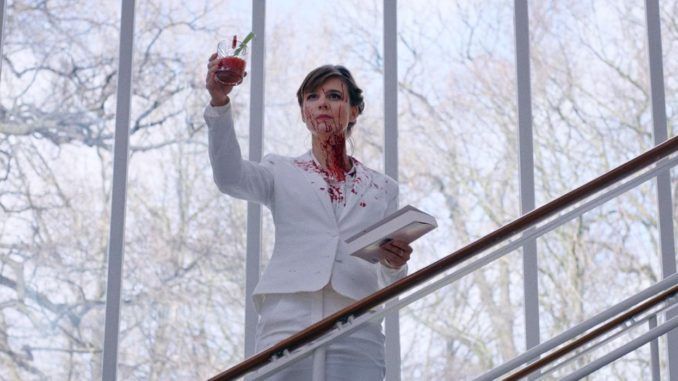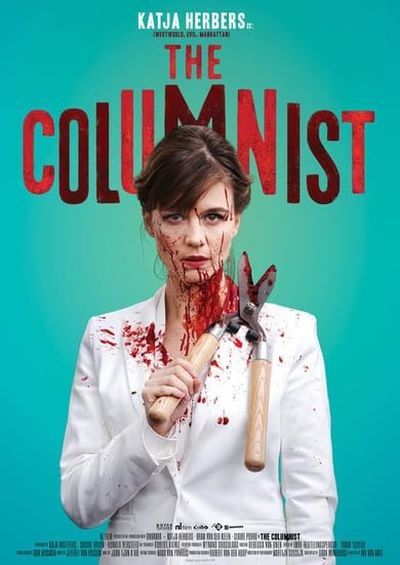
Rating: C+
Dir: Ivo van Aart
Star: Katja Herbers, Claire Porro, Bram van der Kelen, Rein Hofman
Femke Boot (Herbers) is a newspaper columnist, whose life is being plagued by anonymous online trolls, particularly on Twitter. Everything she writes subjects her to a barrage of vile criticism, with her past articles dredged up, and used against her to label Femke a pedophile. Her efforts to get legal protection prove fruitless until finally, she’s had enough, and pushes one of the tormentors, her next-door neighbour (Hofman), off their shared roof. Finding the experience cathartic, she then goes after the other trolls, discovering their real identities and administering her vigilante justice to them. She severs and keeps a middle finger from each victim as an ironic trophy of their crude commentary.
Understandably, van Aart seeks to add nuance to these bare bones. He gives Femke a teenage daughter, Anna (Porro), who is dealing with free speech issues of her own at school. There’s also her new boyfriend, a horror novelist rejoicing in the pen-name of Steven Dood (van der Kelen) – his surname being the Dutch word for “dead”. He plays up to that, and first meets Femke during an abrasive TV panel, but eventually moves in with her and Anna. However, when the daughter discovers her mother’s cache of bloodstained weaponry, she jumps to a totally different conclusion as to who is the serial killer in the family. It’s an amusing subplot, and I wish, at least somewhat, they had developed this element further.
 Mostly though, it’s social satire aimed at the double-edged sword which is the Internet. I’m still not sure exactly what the director’s position is on this: van Aart might be too subtle for his own good there. I generally tend to the side of free speech, but then, I don’t spend much time on Twitter (I refuse to call it X), and never stray off the ‘Following’ tab to ‘For You’. That way lies madness. But if your skin is too thin for the more… ah, robust online forums, don’t visit them. “Never read the comments,” advises Steven to Femke, and he’s not wrong. Cutting her modem cable with a pair of scissors, as she eventually does, is a more extreme yet undeniably effective solution.
Mostly though, it’s social satire aimed at the double-edged sword which is the Internet. I’m still not sure exactly what the director’s position is on this: van Aart might be too subtle for his own good there. I generally tend to the side of free speech, but then, I don’t spend much time on Twitter (I refuse to call it X), and never stray off the ‘Following’ tab to ‘For You’. That way lies madness. But if your skin is too thin for the more… ah, robust online forums, don’t visit them. “Never read the comments,” advises Steven to Femke, and he’s not wrong. Cutting her modem cable with a pair of scissors, as she eventually does, is a more extreme yet undeniably effective solution.
So, I tend to view the sort of “harassment” here as a self-inflicted wound. However, Herbers makes for a likeable protagonist, and the film does a good job of depicting its trolls, most of whom are basically having a laugh, without thought of the consequences on their target. “Why couldn’t you just be nice?” bemoans Famke more than once, demonstrating a touching, if somewhat misplaced, faith in the essential goodness of human nature. By the end, the ambivalence has become almost overpowering. Anna delivers an impassioned plea for free speech, written by her mother. Then Femke herself goes to confront the king of the trolls. With a shotgun. It feels peculiarly Dutch to make a movie about such a contentious topic – and then stoically refuse to take a clear moral position.
